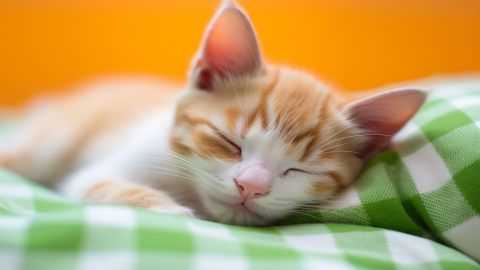What should I do if a kitten bites me and breaks the skin?
Generally, after being bitten by a kitten and bleeding, you should wash the wound, stop the bleeding and dress it, seek medical attention, receive a rabies vaccination, and follow up with proper care and observation. If discomfort occurs, timely medical treatment is recommended. The detailed steps are as follows:

1. Wash the wound
Thoroughly rinse the wound with plenty of running water and mild soap, and wash for no less than 15 minutes. After washing, wipe the wound with iodine, medical alcohol, or other suitable disinfectant.
2. Stop the bleeding and dress the wound
If the wound is bleeding, gently press the wound with clean gauze or tissue paper to stop the bleeding. Once the bleeding has stopped, if the wound is small and no longer bleeding, you may choose not to dress it, allowing the wound to remain exposed to air, which helps keep it dry and reduces the chance of infection. If the wound is large or continues to bleed, dress it with medical gauze under professional guidance.
3. Seek medical attention
If the wound is deep, there is significant bleeding, or symptoms such as redness, swelling, pain, or fever occur, you should seek immediate medical attention for further treatment and diagnosis.
4. Receive rabies vaccination
Since rabies is a fatal viral disease and cats are potential carriers of the rabies virus, it is generally recommended to receive a rabies vaccination after being bitten by a kitten with bleeding. The vaccination should be administered as soon as possible after the bite to ensure effective prevention.
5. Follow-up care and observation
During the healing process, keep the wound clean and dry, avoiding contact with water or other contaminants. Do not scratch the wound with your hands to prevent infection and disruption of the healing process. Additionally, closely monitor your physical condition, and if any discomfort or abnormal reactions occur, seek medical advice promptly.
When playing with kittens, try to avoid actions that may provoke them, such as pulling their tails excessively or scratching roughly. Also, avoid feeding kittens directly by hand to prevent accidental bites.







